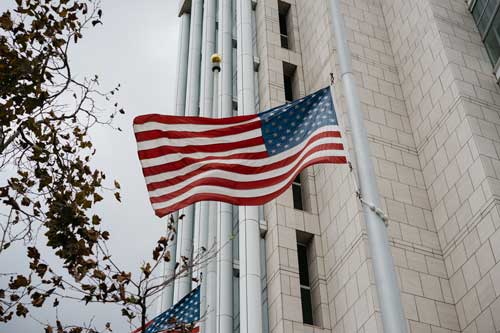Today we take on the second rule of asset protection. The first rule of asset protection is what you dont own cant be taken from you. If you haven’t seen that video, take a look at it, this is where things get interesting.
This is where you learn how to put your opponents in a position that had cost them $10 to collect 10 cents.
Here is the lesson. No country in the world automatically enforces U.S. judgments. I repeat, no country in the world automatically enforces U.S. judgments. Think about it.
The world’s not like the United States, we have 50 states. Every state is required to enforce judgments from any other state. It’s because of the full faith in credit clause in the Constitution. There’s no such thing as a full faith in credit clause worldwide. Japan, England, France, Germany, China, Italy, are not required to enforce U.S. judgments.
Sometimes there’s treaties that make it a little bit easier, but in every single case there’s at least a mini trial. By the way, it’s not the same with arbitration awards. Martin Damke (american arbitration association), a good friend and mentor of mine, who’s now dead, founded the American Arbitration Association and he spent his whole life of forcing and massaging the international community in New York to adopt arbitration. Arbitration treaties make arbitration awards much easier to enforce internationally than regular judgments from litigation.
 So I stay away from arbitration provisions if possible. You should too if you do business internationally.
So I stay away from arbitration provisions if possible. You should too if you do business internationally.
In the United States, we can register judgments and enforce them easily with no major procedural impediments.
Not true when you take a judgment in the United States and go abroad to enforce it. By moving money abroad, or by moving assets abroad, the jurisdiction in the United States forces your opponent to hurdle some very significant barriers.
The first barrier is that they have to hire a lawyer; and in America, we’re used to lawyers being commodities. We’re burdened with 1,300,000 lawyers. Places like China have less than 200,000. We have a lot of “out of work”, unemployed lawyers willing to do anything for almost any compensation agreement.
If you go abroad, you’re going to find a much smaller number of lawyers. You’re going to find them to be much more ethical, and will find none of them are willing to do it on a contingent fee basis. Imagine a contingent fee litigator getting a judgment for $5,000,000 against you in the United States. He would be going home to count his money right now.
But can you imagine the same guy shelling out $250,000 to pay some lawyer in Switzerland in cash to go after your protected fund just because you moved it from Bank of America in California to Credit Suisse or Pictet Bank in Switzerland? No, they’re not going to do that. They’re going to really have a problem with pursuing you abroad. Why?
Because they’re like common burglars and they only take the easy pickings. They want what they can get their hands on without too much work. They’re not going to spend their own money. The first hurdle is they have to hire a international lawyer, which gets extremely expensive.
Second, in most countries, they’ll have to post a bond to pay your legal fees if you win. This isn’t some little $5,000-bond. This is a quarter of a million $ type of bond.
Oftentimes, a full cash bond so the money is there unless they can get an insurance company that will write a check. Unless they can get that type of insurance company to issue a bond, they will have to post the bond with cash.
So, you’re opponents will have to put up double what they would normally have to spend to go after the money abroad. The real problem for your opponents is the funds can easily move places again. What does it take you to move money? It takes you 5, 10, 15 minutes to authorize a transfer. Your opponent won’t even know the money has moved. But your opponent will have to spend at least six months litigating.
If they win, they’re going to find that the money’s not there because its been moved. This ends up being a dead end for them, giving you the upper hand. It’s a game theory. This gives you the power to take control of your assets. This gives you the power to make it so that they think twice about going after you.
Keep watching the rules of asset protection. We have lots and lots of videos that go into the in depth aspects of asset protection. We’ll definitely give you the tools to actually analyze, to pick the right people, to even do some parts of it yourself.
If you take anything away from this, take away the fact that you no longer have to be vulnerable to anybody. Take control of your life and stop the professional takers. If you spend 10% of the time you spend making money, protecting it, you will be safe and will sleep well at night.